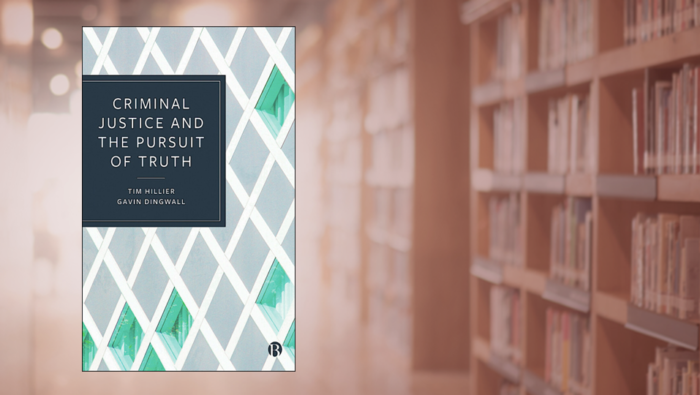
To be Perfectly Honest …

In Criminal Justice and the Pursuit of Truth, Tim Hillier and Gavin Dingwall seek to explore how criminal justice can be improved to reduce miscarriages of justice (incorrect acquittals as well as convictions) and how the purported search for truth clashes with other values, such as that of fairness. Despite the title, it becomes apparent after a while that the authors’ concern is with the English and Welsh criminal justice system (CJS), though at times they quote US statistics, authors, and case illustrations. The book is divided into ten chapters covering some of the main issues one would expect in a book on criminal justice (making of allegations, confessions, sentencing, and restorative justice). As well as this, the text addresses other topics that are more at home in a book on criminal evidence (improperly obtained evidence, testimony, and fact-finding in trials).
Yet, despite, or perhaps due to, the book’s discussion of a wide range of issues, it is not entirely clear who the intended readership of this text is. The fact that the pursuit of truth theme is dealt with rather superficially in the first chapter, is not carried through consistently within each chapter, nor summarised and developed in the conclusion, undermines any claim to provide a novel argument about how truth is balanced with other values. Indeed, those looking for a comprehensive discussion of relevant Socio-Legal work on the extent to which the CJS, even just the English and Welsh CJS, seeks and obtains truth, will be disappointed. It should be noted that while not offering any original empirical studies, the book does draw on a wide range of Socio-Legal empirical and theoretical work of a sociological, criminological, and psychological nature. But those who are familiar with the literature in the area will be surprised by the omission of many seminal studies and authors. Where, for instance, was Twining’s discussion of the Rationalist Tradition, Bennett and Feldman on narrative, and Wagenaar, van Koppen, and Crombag on the role of narrative in criminal fact-finding, Packer on crime control and due process, and Baldwin and McConville on negotiated justice? Similar lacunae are seen in relation to the discussion of concepts such as truth, where there is no discussion of anything other than the correspondence theory and some very outdated and narrow debates, despite the obvious connection of coherentist theories of truth to the discussion of narrative in trials. And while chapters on sentencing and restorative justice were a commendable addition to a book about how truth is constructed in the CJS, the discussion could have been more directly related to questions of truth. For instance, sentencing raises interesting questions about how fact-finding and the ascertainment of truth in sentencing differ from the determination of guilt at trial. Equally, the restorative justice chapter might have explored how restorative justice goals may fit better with coherentist and Rortian conceptions of truth.
Given the level of discussion, one wonders if the book was intended for teaching purposes. But, if so, what course? The topics discussed both exclude many core CJS topics (for instance, arrest, stop and search, bail, and imprisonment) and include some that might be regarded as less important (such as improperly obtained evidence and testimony) to serve as a textbook for a CJS course. On the other hand, there is not the level of coverage of topics like confessions, hearsay, and character, and no discussion at all of the increasingly important issues of forensic evidence and computer data, for a course on criminal evidence.
Perhaps, then, Criminal Justice was meant for those looking for an introduction to the CJS; in which case many of the chapters are likely to be experienced as a good read with a lively and engaging tone, strong examples, and easy to understand introductions to concepts such as truth, adversariality, negotiated justice, many aspects of the CJS, and to particular legal doctrines. But then again, the lay reader might regard some of the chapters (for instance on improperly obtained evidence and sentencing) and some of the legal discussion rather too detailed for their purposes and not sufficiently oriented towards the theme of the CJS’ pursuit of truth.
So, while I enjoyed reading some of the anecdotes and illustrations of well-trodden issues, and learned of some new research, as someone who is relatively familiar with this area of Socio-Legal work, I would have appreciated a much deeper and more sustained discussion of the role of truth in the CJS and how current problems might be remedied.

